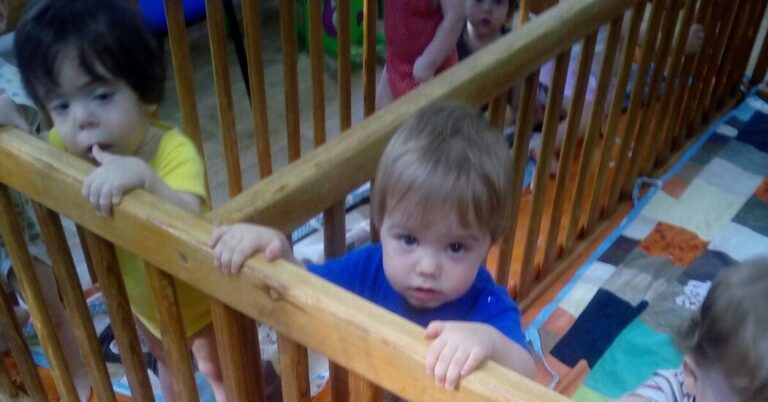“Navigator,” the man who ordered the children removed from the church, visited the foster home several times. He was later identified as Igor Kastyukevich, a Russian lawmaker from Mr. Putin’s political party, United Russia.
Anna Kuznetsova, Deputy Speaker of the Russian Parliament and Ms Lvova-Belova’s predecessor as Commissioner for Children’s Rights, came from Moscow to deliver baby products. in the name of the party. “#WeDon’tAbandonOurOwn”, she wrote on Telegram, using a pro-war hashtag to suggest the children belonged to Russia.
In interviews with The Times, Russian officials echoed that view, saying Kherson’s children were Russian.
In May, Mr. Putin kept his promise to Ms. Lvova-Belova by issuing a presidential decree easing citizenship requirements: in Kherson and other occupied regions, Ukrainian caregivers could now apply for Russian citizenship on behalf of adopted children and Ukrainian orphans.
The decree also sped up the process so that children could become Russian citizens in 90 days or less, instead of up to five years.
The following month, Ms. Korniyenko, the director of the shelter, was summoned to the Ministry of Health in Kherson, now run by the occupation authorities. A Russian-backed official asked her to remain director, but under his supervision. He was even offered a Russian passport.
But Ms. Kornienko refused. She was fed up with the occupiers who, she said, intimidated staff by questioning them about their political views to test their allegiance and carried weapons while watching the children.
Dr. Lukina also resigned. She cared deeply about the children, but she wanted to play no role in what the Russian-backed authorities might do to them.
“I didn’t want to be part of it,” she said. “And I was afraid they would take me too.”
Looking for a new director, the occupation authorities turned to Dr. Tetiana Zavalska, a pediatrician at the shelter who often worked nights and weekends. She sympathized with the new occupation administration and clearly expressed her pro-Russian views.


